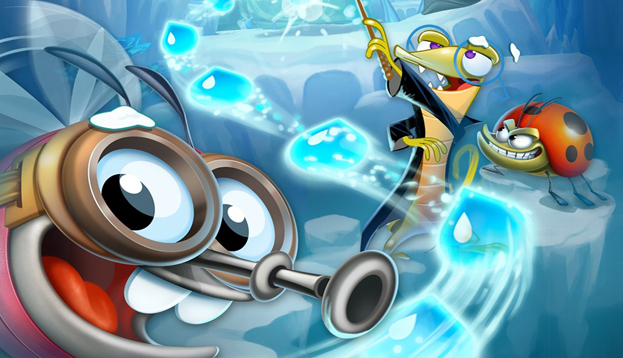For those of you who attended our [a]list summit on mobile marketing last month, you had the opportunity to hear Andrew Stalbow, the co-founder and CEO of mobile game startup Seriously, speak about his belief in the huge potential for the mobile games space (second from the left in the picture above). In a blog post this morning, he gave an update which shows that his company’s first game, the puzzle adventure Best Fiends, is generating $50k per day just 10 weeks after launch, all without the backing of a traditional publisher. This comes from a startup with only 13 employees and an unknown IP and in a highly competitive app market. So how they do that There some strategic lessons in entrepreneurship and modern day marketing we can learn from highly successful mobile game startups
1. It’s all about the team.
While you might not have heard of mobile games startups like Seriously, Super Evil Megacorp, SGN and Next Games, they are all founded and run by gaming and social networking veterans, many with successful previous exits and experience from well-known companies such as EA, MySpace, Rovio and Supercell. In Seriously’s case, the first hires have backgrounds in top roles at Natural Motion, Rovio, Disney and Remedy. They have learned the biz on someone else’s dime and now bring that know-how to these startups where they also have the opportunity for a nice upside if the company and its games take off while keeping a fairly low overhead.
2. Come packing with a war chest of cash.
Most of these companies are well funded and they understand the importance of going big right out of the starting gate. They spend a lot of money on sophisticated user acquisition as well as smart marketing (using influencers and CE-partnerships, key art, trailers, music and graphics). For example, check out Seriously’s influencer campaign with the world’s biggest YouTuber PewDiePie or the behind-the-scenes video with Despicable Me music composer as he conducts as 68-piece live orchestra for the score to score their new game below.
3. Understand that dumb app downloads are worthless.
So the game has to be good, or in industry-speak, deliver user retention as well as monetization. While a “good game” is as much art and it is science, there are innovative ways of using marketing tactics that you can use to make the game more social. For example, for players of Best Fiends who log into Facebook, they enable people to see how they are faring against friends on a visually-appealing 3-D map, which has helped to push retention rates to 70 percent on day one and over 45 percent by day seven — high metrics by industry standards.
As mobile games revenues are expected to trump console game revenues this year, it will be an interesting space to watch as these fairly new companies are growing quickly and scooping up more and more talent hungry to innovate and win big.

